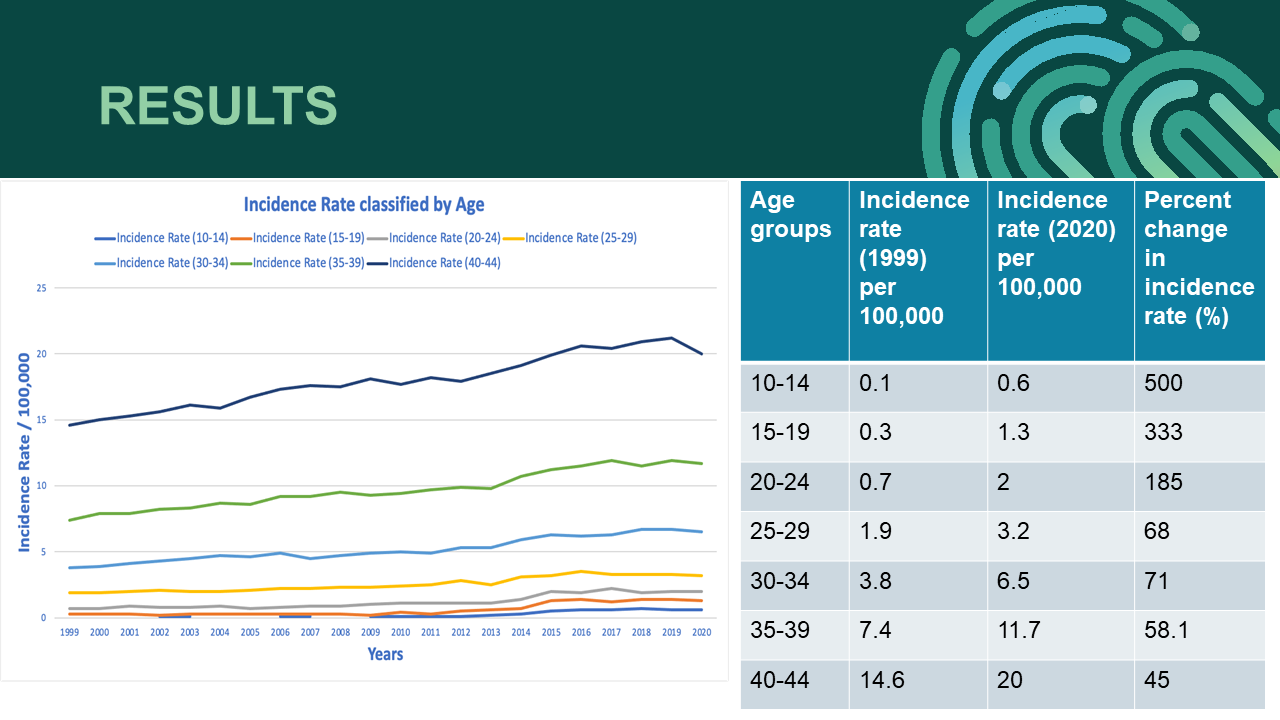Colorectal cancer has increased dramatically in younger adults over a 20-year period, with the most drastic increase of 333% observed in teenagers 15 to 19, according to a new study being presented during Digestive Disease Week® (DDW) 2024 by Islam Mohamed, internal medicine resident, University of Missouri-Kansas City.
“This data reveals some very concerning trends, particularly in our younger population who do not typically come to mind when considering CRC screening for patients,” says Dr. Mohamed.

Increases in CRC incidence among younger individuals has prompted several organizations to reduce the recommended age for CRC screening from 50 to 45 years. Following these updated guidelines, Dr. Mohamed wanted to take a closer look at the trends impacting young individuals in distinct age categories.
Researchers used the Centers for Disease Control and Prevention Wonder Database to assess the incidence of CRC from 1999 to 2020. They divided individuals into 5-year age groups, starting at 10-14 years of age up to 40-44 years.
All age groups experienced notable increases in the incidence of CRC between 1999 and 2020:
- 500% increase in individuals 10-14 years of age,
- 333% increase in individuals 15–19 years of age,
- 185% increase in individuals 20–24 years of age,
- 68% increase in individuals 25–29 years of age,
- 71% increase in individuals 30–34 years of age,
- 58% increase in individuals 35–39 years of age,
- 45% increase in individuals 40–44 years of age
- The highest incidence was seen in the 40–44-year-old group in 2020 at 21.2 per 100,000 individuals.
While the trends are alarming, according to Dr. Mohamed, the absolute incidence rate of colorectal cancer among children and teens is not high enough to warrant early widespread screening.
He does note, however, that physicians should not dismiss the possibility of CRC in a patient who presents with symptoms, no matter their age.
“It’s important that the public is aware of signs and symptoms of colorectal cancer,” he says. “Changes in bowel habits, abdominal pain, and/or rectal bleeding should prompt further evaluation.”
Dr. Mohamed hopes that this study will heighten the public’s awareness regarding risk factors for early onset colorectal cancer, which include genetic, metabolic, environmental and lifestyle-related factors. He believes further studies should be implemented to investigate other etiologies that may be contributing to this concerning uptrend. Ultimately, Mohamed says this could lead to more tailored screening recommendations that consider risk factors in addition to age.

An expert’s take
We asked Dr. Jatin Roper from Duke Department of Medicine to share his thoughts on this new research:
“This important study by Mohamed and colleagues adds to the growing body of research showing an alarming global increase in incidence of many cancer types, particularly colorectal, in younger individuals under age 45. The most striking finding from this abstract is that the incidence of colorectal cancer is rising across ages starting from cohorts aged individuals aged 15-19 and 20-24, with rises of 333% and 185%, respectively, from 1999 to 2020. The findings, particularly in the teenaged groups, should be interpreted with caution until the complete dataset can be evaluated after publication. Overall, this study supports the hypothesis that modifiable risk factors early in life such as obesity, changes in the commensal microbiome, or dietary changes may be contributing to the development of colorectal cancer in younger individuals.”
Dr. Mohamed’s oral presentation, “Evolving trends in colorectal cancer incidence among young patients under 45: a 22-year analysis of the Centers for Disease Control and Prevention Wonder Database” on Monday, May 20, at 12:30 p.m. EDT is part of the session “Epidemiology of Gastrointestinal Disorders.”





2 Responses